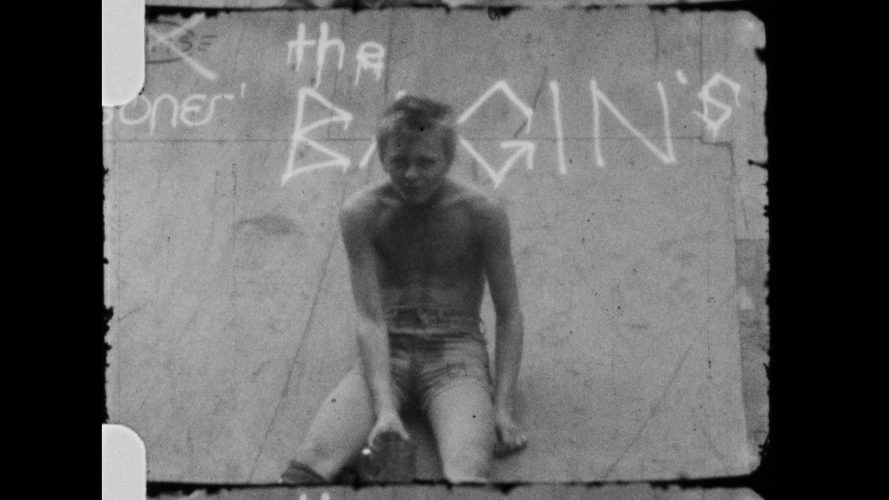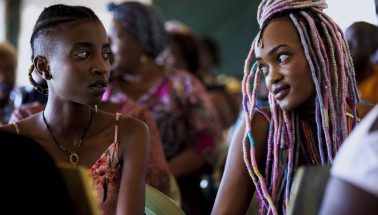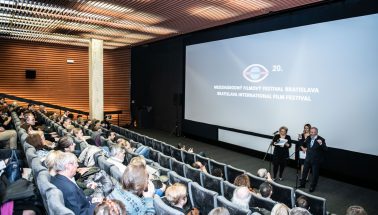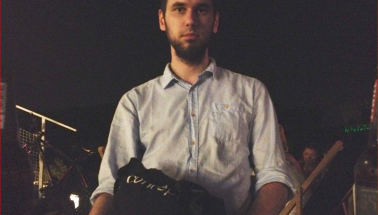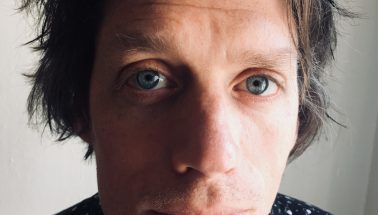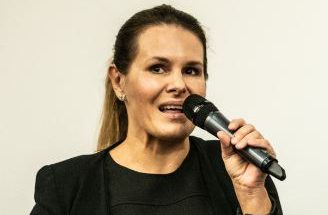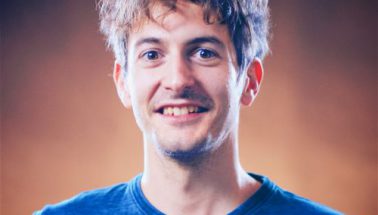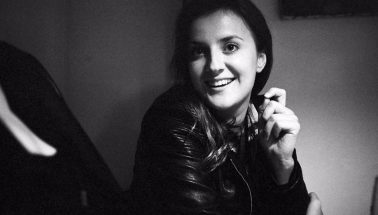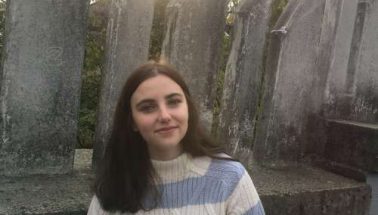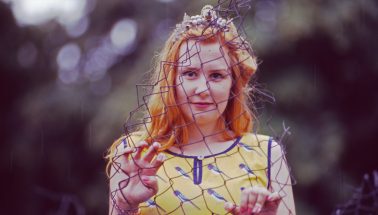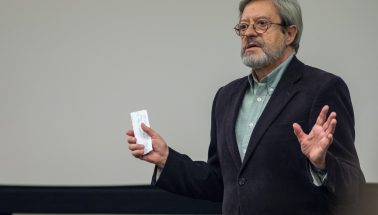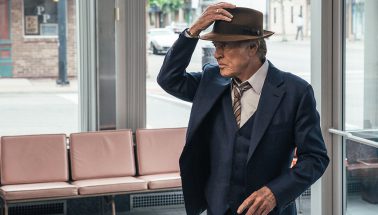“It’s nice to step out from the bubble of social networks – the binary world of likes/unlikes to be part of the group of totally different people, who are connected only by the skateboards.”
Šimon Šafránek. – director, journalist, DJ – multi-genre artist with the sensation of music and word. He’s a freelancer, writing for the Denník N, Hospodářské noviny, Reflex, Magnus etc.
He focuses mainly on film, music videos and cultural life. At MFF Bratislava 2018 he’s coming to personally introduce his feature debut about skateboarding in Czechoslovakia called King Skate.
The part of your artistic creation is literature, directing of music videos, film critic etc. In your movie King Skate, all of these activities are connected. How long did you make the movie?
It took approximately three years to make it. The last year, when we edited the movie and finalized it, was the most intense one.
You’re mapping 70s and 80s, the era of communism in Czechoslovakia. However, your point of view is not as depressing as it usually is in our country. On the contrary. You were born at the end of 70s, which means you offer the viewer something that you experienced yourself. How do you remember this time?
I was twelve when the communism collapsed, so I have only scrappy memories. I spent a lot of time in countryside and in nature. But I was never part of the children’s communist world, the parades, the collective excercise (spartakiáda).
From a narrative point of view, skateboarding at that time was something like an island of freedom: just the image of the western skateboards set in the socialist background is fascinating to me. Back then, it was a huge adventure, a kind of a rebellion – not as much against the system as against the parents, and it was also a huge fun. That’s what we were trying to show in the movie, to get you in the world of that crazy group and to bring a fresh spectacle. And to make you look at the real world.
How did you get to this group of skateboarders? I know you weren’t one of them. In the film, we don’t see your archive footage but those you’ve been able to collect from the individual members of this community. And there’s a lot of them.
The initial inspiration was the book by Martin Overstreet and Michal Nanor called We cut the boards for meat. The skateboarding story captivated me. And pictures, hundreds of archival authentic pictures. I thought there had to be some films about this topic as well and I was right. The process was quite organic – Kateřina Černá, the producer in Negativ that I had known, was a member of the skateboarders’ community, so I approached her. One of the skateboarders – cameramen, Vojta Kotek is a born archivist, therefore he immediately brought a drive with hours and hours of digital material. At the end, we managed to put together around thirty hours of archives, recorded by the skateboarders.
By the way, what about you and skateboard? Have you tried?
By the end of the 80s, I found the Czechoslovak board Esarol in our cottage. I was trying to stand on it, but I just wasn’t able to do it. I thought the problem was me, so I haven’t tried it since then. There was no skateboard community around me.
Has the encounter with these people affected your view of the world? How are the skateboarders from the movie today?
They are very nice people, they still meet, they organize different races like Old knees. I admire how they were all in, they weren’t afraid, on the contrary, they psyched up each other. And it’s nice to step out from the bubble of social networks – the binary world of “likes/unlikes” to be part of the group of totally different people, who are connected only by skateboards. That’s the reason why their community is amazingly diverse and lively.
Do we nowadays have something like these skateboarders – young, extravagant, brave, open-minded people? Who could we compare them to?
I hope, we do. I believe it, for sure. But now I can’t think of any specific group of people. The thing is, it’s necessary to look around and listen to people and I was listening to these old folks on skateboards.
Music is an important part of the film – both world and Slovak artists. Could you tell us more about that?
I knew from the beginning, music would play an important role in the movie. Mainly because it can bring out a specific emotion very quickly but also because it is part of skateboarding. We based it on the music they had been listening, and on the music, typical for that time in Czechoslovakia. Skateboarding went hand in hand with punk, therefore Sex Pistols and The Clash or Plastic Bertrand were a must. At the same time, we wanted to make the structure varied. That’s why we picked DEVO or Killing Joke.
From the Czechoslovak music scene, we were interested in the new wave of Laco Lučenič and Meky Žbirka. We also picked some contemporary music bands whose sound had a similar character as these archival pieces. They needed to be congruent with that sentiment. Czech indie music scene worked out perfectly – Wild Tides, Kill the Dandies or Moimir Papalescu and The Nihilists. But of course, also the French electroclash band Pravda, whose tunes I played during my DJ parties with The Fakes or the Hungarian band Hangmás, who I made some music videos for.
It took us several months to put the music together.
And it was worth it. What you are fascinated by now? What can we look forward to?
I have time to write now, so I write. We’ll see what comes of it.
Thank you for the interview.
See you in the cinema!
Anna Kačincová Predmerská
